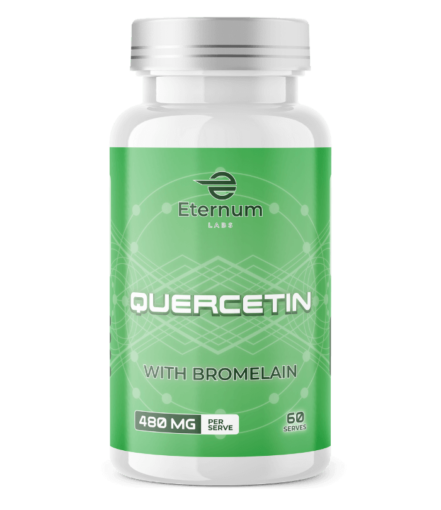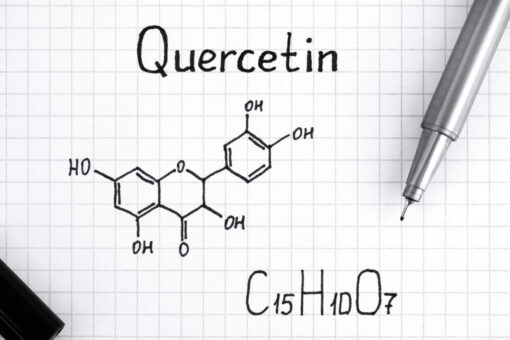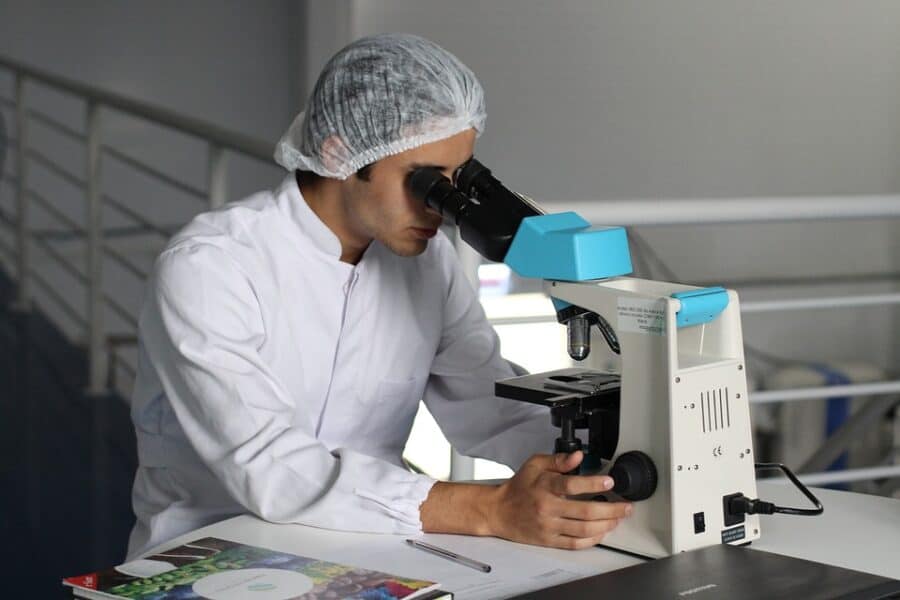Quercetin Supplement: What Are The Benefits?
Quercetin is a type of phenolic compound found in many plants. It’s also one of the most abundant natural antioxidants. In fact, quercetin is so effective at fighting off free radicals that it’s often referred to as a “superhero” antioxidant. This article will explore if quercetin supplements are beneficial and what the best quercetin supplement options are.
What is Quercetin?
Quercetin is a flavonoid compound found naturally in many foods. It’s an antioxidant that has many health benefits such as reducing inflammation, improving heart health and more. Quercetin is used for prevention and treatment of various health conditions, including allergies, high blood pressure, diabetes, cancer, joint pain, and more. It is also used for increasing the effectiveness of other drugs. Quercetin is most well known for its anti-inflammatory effects. It’s often recommended for allergies and asthma. It may be particularly useful for chronic allergies that are caused by an overactive immune system. Quercetin can also help with allergies caused by an overproduction of histamine. It also has antioxidant, anti-aging, and immunomodulatory effects. Overall, quercetin is a great supplement to include in your daily routine.
Benefits of Quercetin
There are many benefits of quercetin, including reducing the risk of heart disease, lowering blood pressure, and treating allergies. You can find quercetin in many different types of foods, including apples, black tea, broccoli, and red wine. Quercetin is also available as a dietary supplement. Quercetin can help treat allergies – Quercetin is often recommended for allergies, including allergies caused by pollen. It’s believed to be helpful for allergies because it can reduce inflammation and improve your body’s response to allergic reactions. Quercetin can lower blood pressure – Quercetin may be helpful for people with high blood pressure. It can reduce how much your arteries tighten, which can lower your blood pressure.
How does Quercetin work?
Quercetin is a natural antioxidant that can neutralize harmful free radicals in your body and prevent cellular damage caused by them. It’s considered a “first-line defense” against oxidative stress among all the antioxidants. Oxidative stress is caused by a lack of antioxidants in your body. Free radicals (unstable molecules) build up in your system, causing cellular damage that can lead to many diseases including cancer. Quercetin is one of the most abundant natural antioxidants. It’s produced in your body, but you can also get it from certain foods. It’s also available as a supplement.
Should You Take Quercetin Supplements?
The quercetin supplement is a powerful antioxidant that can help reduce your risk of many different diseases and health conditions. You can find this beneficial compound in many different types of foods, including apples, black tea, broccoli, and red wine. You can also take quercetin supplements to get a daily dose of this potent antioxidant. Quercetin supplements have many health benefits and can be used to treat a variety of different diseases. It can help treat allergies, lower blood pressure, and reduce your risk of many types of cancers, among other conditions. It’s important to note that quercetin isn’t proven to cure any diseases. Instead, it’s used to prevent them and reduce your risk of contracting them.
The best Quercetin supplement options
There are many different types of quercetin supplements available. Ideally, you want to find a supplement that contains high-quality quercetin. Quercetin supplements come in a variety of different forms, including capsules, tablets, and powders. You can also find quercetin supplements in liquids like gummies or drinks. When choosing the best quercetin supplement for you, it’s important to consider the dosage (amount of quercetin per serving), brand, and ingredients. You should also fully read the label and make sure there aren’t any potential side effects associated with the supplement.
Side effects of Quercetin
While Quercetin is generally safe, it’s possible to experience some side effects. These side effects will likely be mild and may include nausea, headaches, or upset stomach. You may also notice that your urine or stool changes color. Most of these side effects are harmless and will go away after a few days. If the side effects are particularly severe or don’t go away, it may be a sign that you’re taking too much quercetin.
How Quercetin aids in weight loss
Quercetin supplements are useful for weight loss because they help to suppress your appetite and increase your metabolism. Achieving the perfect body is all about the right balance between diet and exercise, but sometimes it can be difficult to maintain that balance with a busy schedule. Quercetin helps you keep it on track by reducing your hunger pangs so that you’ll feel less inclined to eat more than necessary at meal times, which in turn helps reduce fat storage. Other benefits include improving cholesterol levels, reducing fat absorption and helping to prevent diabetes symptoms.
Quercetin supplements are also popular among those who want to improve their overall health without having any adverse side effects associated with other weight loss methods such as taking stimulants or using surgery techniques such as liposuction or gastric banding surgery (also known as bariatric surgery).
Should you take Quercetin everyday?
It’s recommended that you take a quercetin supplement every day. The daily dosage will depend on the type of supplement you take. For example, some supplements recommend taking 500 mg per day, while others recommend 1,500 mg. You may notice some positive effects after taking quercetin for a few weeks. It will likely take longer to experience the full benefits of taking this supplement.
How long does it take Quercetin to start working?
It can take anywhere from a few weeks to a few months for quercetin to start working in your body. This will depend on the type of supplement you take. It’s important to be patient, as it can take some time for your body to fully absorb and utilize the antioxidants in quercetin. Quercetin supplements are best used for prevention and long-term health. It’s not likely that you’ll notice any immediate benefits after taking the supplement.
How much Quercetin can I take a day?
There’s no recommended daily dosage of Quercetin. However, many experts suggest taking anywhere from 500 to 1,500 mg per day. The amount you need to take will depend on the type of supplement you take and your health goals. It’s important to note that you shouldn’t take too much quercetin at once. Excessive amounts of quercetin can be toxic and may cause adverse side effects.
Quercetin works as an effective antioxidant and anti-inflammatory
Quercetin is a flavonoid found in apples, onions and berries. It is known to have potent antioxidant and anti-inflammatory properties. Antioxidants are compounds that help to neutralize free radicals in the body that can cause damage to cells. Quercetin has been shown to be an effective antioxidant, especially when taken with other powerful antioxidants such as vitamin E or vitamin C.
Anti-inflammatories reduce inflammation in your body by suppressing production of inflammatory agents called cytokines that trigger pain, swelling and redness. Quercetin has been shown to suppress production of these cytokines and relieve symptoms associated with inflammation. Antioxidants, such as NAC help fight free radicals that cause oxidative stress and damage cells in the body.
Quercetin is a powerful antioxidant that can help reduce your risk of many diseases, including heart disease and cancer. You can find quercetin in many different types of foods, including apples, black tea, broccoli, and red wine. You can also take quercetin supplements to get a daily dose of this potent antioxidant. Quercetin supplements have many health benefits and can be used to treat a variety of different diseases. It’s important to note that you shouldn’t take too much quercetin at once.
https://examine.com/supplements/quercetin/
https://www.webmd.com/vitamins/ai/ingredientmono-294/quercetin





